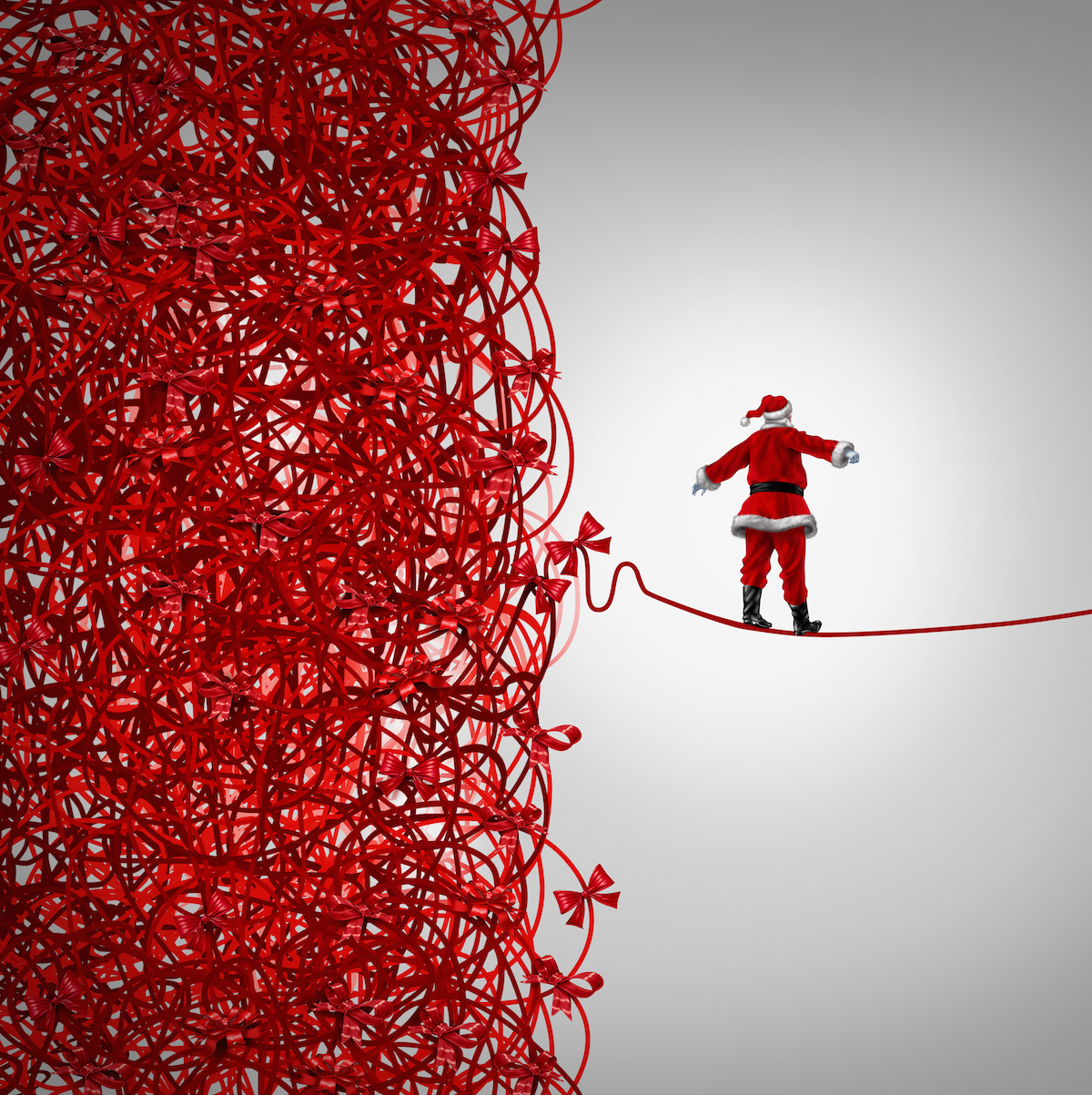3 Ways to Harness Your Brain’s Power & Change Your Life

Between psychology, medical science, and neuroscience, we have never known so much about the human mind. Recently I’ve been amazed at the number and quality of studies that are showing us the amount of pure power our brains have; powers that are truly amazing. Powers that change the meaning of the old phrase, “put your mind to it.”
3 Amazing Brain Discoveries
- Build muscles and increase your metabolism: In a study by Ranganathan, et al., 2004 a group of people who listened to guided imagery of themselves going through a strength training work-out built almost as much muscle mass as people who actually did the work-outs. Scientists think that the mental process of imagining a workout releases the same hormones to build muscle that are released during an actual exercise session.
This worked similarly for calorie burning. In a Harvard study, a group of hotel housekeepers was told that their job provided an excellent work-out. When compared with a similar group who were not told this, the “believing group” lowered their body fat, blood pressure, and BMI far more than housekeepers doing the exact same job but who were not led to believe it was an excellent form of exercise.
The Takeaway: Your brain is far more powerful than scientists ever knew. It is capable of building muscle and raising your metabolism, by the sheer force of your belief and imagination.
- Turn a weakness into a strength: A fascinating study by Wesnousky, et al, 2015 found that when people believe there is an upside to their personality flaw, they begin to show it. For example, when subjects were told that they were impulsive, but that impulsiveness has the upside of being more creative, they then performed much more creatively on subsequent tests.
The Takeaway: Be careful what you believe about yourself because your brain will make it so.
- Drastically improve performance, just by imagining it: Multiple studies have shown that from athletes to surgeons to musicians, repeatedly imagining oneself performing a complex task, vividly and with realistic detail, leads to greatly improved performance. Many who are called upon to conduct high-pressure performances use the power of their imaginations to excel and perfect their skills.
The Takeaway: Your imagination has the power to significantly improve your ability to perform a complex task.
As a psychologist whose business is helping people change, I am not surprised by these findings. Every day I see people harness their brain powers to make profound changes in their personalities, their relationships, and their lives.
3 Ways to Harness Your Brain’s Power to Change Your Life
- Own your power to change: Many people use their own power against themselves. If you believe that you cannot change, your brain will make it so. It is vital to flip that false notion on its head. Claim your power. Own it. And start using it.
- Decide how you want to be different, and then vividly imagine yourself that way: For example, if you want to become more confident, repeatedly picture yourself confidently presenting at a work meeting, or self-assuredly walking through a crowd. Combine this mental practice with actual practice in real situations. Your progress will likely be faster.
- Believe in yourself: Scores of fine people walk around this world feeling unworthy, invalid, or invisible (a result of Childhood Emotional Neglect). Others may feel unlovable, anxious, angry, or hopeless. If any of these words describe you, you can begin to use the power of your brain. Picture yourself in vivid color, exuding confidence and strength. Imagine yourself being and owning who you truly are. See that you are worthy and that you bring value to those around you.
Of all of the things in this world that you can believe in, none are as important as you.
So make a conscious decision. Wish it, believe it, imagine it. Your brain can make it so.
To learn more about Childhood Emotional Neglect, how it happens and how to recover from it, see my books Running Empty No More: Transform Your Relationships and Running On Empty: Overcome Your Childhood Emotional Neglect, and Take The Emotional Neglect Test for free.
A Fresh View of Personality, Personality Disorder, Growth, and Change

People don’t change.
Or do they?
It has long been believed that personality, the ingrained set of traits that determine our behavior and decisions, is entrenched and virtually unchangeable.
In the late 1990s, psychologists identified five traits which are believed to form the basis of personality. They are:
- Openness to experience
- Conscientiousness
- Extroversion
- Agreeableness
- Neuroticism
The notion that personality is not changeable has been tremendously impactful upon the population at large. For example, people diagnosed with personality disorders have felt sentenced to a lifetime of discomfort. Introverts and extroverts have resigned themselves to the negatives that go with each style as permanent limitations.
But now a door has been opened to a new way of thinking. A way of thinking that may forever alter how we view personality, personality disorder, growth and change.Continue reading
Stressful Family? 10 Mantras to Get You Through the Holidays

Is your family happy and supportive? Are your holiday family gatherings warm, loving and festive? If so, that is wonderful. And you can stop reading this article now.
Is your family complicated? Do you often feel hurt, pained, disappointed, damaged, or let down when your family is together? If so, this article is for you. Never fear, help is here. (For more about painful family dynamics, take a look at last week’s article, 4 Subtle Family Dynamics That Can Ruin Your Holidays.)
No, of course we can’t fix your family issues before this year’s holiday gathering. But we can give you some new tools to get you through it. One of the most powerful tools to cope with a painful family is a mantra. It’s a sentence that you repeat inside your head over and over throughout the day. You can call upon it whenever you need to feel calmer and stronger. It serves to remind you what’s really going on in your family. It focuses your attention, and it provides you with the strength and resolve to get you through the day.
While going through the list below, choose the one that feels most right to you. It should be one that you can feel in your gut. It should make you feel a little stronger as you say it.
Here are Ten Mantras to choose from:Continue reading
Invisible You

This comment was posted on the Ask Dr. Webb Page of my website. It describes an experience that many can relate to: the feeling of being overlooked.
I have a question about invisibility. I was at a study group and afterwards everyone was chatting with each other except me. I had this overwhelming feeling of being invisible. It brought me almost to tears. Then, just this past Saturday I was standing with my husband and other men when a lady I knew came up, stood right next to me and asked where all the wives were. I said “I’m right here” and she replied “I didn’t see you.” I’m not sure what to make of this.
Are some people overlooked more than others? Yes.
Is it because they’re less interesting? Less important? Less vivid? No.Continue reading
When the Narcissist Becomes Dangerous

Recently at a dinner party, talk turned to the current news story about Bill Cosby. As the only psychologist at the table, everyone looked at me as one person asked with intense curiosity, “How could anyone victimize women all those years, and still live with himself? How could you sleep at night?”
Since I don’t know Bill Cosby, I can’t speak for him; nor do I know if he is guilty of the accusations against him or not. But generally, in an actual situation like this, there is an answer to the question. The answer is one word: narcissism.
In many ways, it seems like it would be fun to be narcissistic. Wouldn’t it be great to go through life feeling superior to other people, and with unwavering self-confidence? Yes!
But as we all know, there is a dark side to narcissism. That unwavering self-confidence is as brittle as an eggshell. Narcissists don’t move back and forth on a continuum of self-esteem as the rest of us do. Instead, they run on full-tilt until something taps that protective shell of self-importance hard enough. Then, they fall into a million pieces. Under that fragile, brittle cover lies a hidden pool of insecurity and pain. Deep down, the narcissist’s deepest and most powerful fear is that he is a nothing.Continue reading
4 Subtle Family Dynamics That Can Ruin Your Holidays

Do you look forward to seeing your family at the holidays, but then often come away feeling vaguely disappointed, confused, angry or guilty?
If this is true of you, then you need answers to what is truly going on in your family. And you need them quickly since The Holidays are here. Is it possible to make this year’s family gathering less disappointing?
Yes.
As a psychologist I have found that as adults, family dynamics have the power to make or break our holidays. And that family dynamics have the most power when they run under the surface, unseen and unknown by the family members themselves.
The bad news: it is often very difficult to change your family dynamics. The good news: it is usually not necessary to change them. Being able to see what is really going on between family members is enough to make you less vulnerable.
Here are Four Subtle Family Dynamics that can ruin your holidays:Continue reading
Ten Steps to Learn Self-Discipline

Here’s a brief recap of last week’s article, Self-Discipline Season Has Begun:
- Struggling with self-discipline is not a sign of weakness or a character flaw
- Self-discipline is made up of two parts: making yourself do things you don’t want to do, and stopping yourself from doing things that you want to do.
- Each of these two parts is a skill, nothing more and nothing less.
- Since self-discipline is a skill, it can be learned!
- In the best-case scenario, we learn these skills from our parents, when they discipline us throughout childhood.
- Many parents, even those with the best intentions, fail to teach their children this skill well enough (an aspect of Childhood Emotional Neglect).
- If you did not internalize the Two Skills of Self-Discipline in childhood, you can teach them to yourself as an adult.
Meet Josie.
Josie is walking toward the dessert table at the office Holiday Party. “This party is boring,” she thinks, “but at least that double chocolate cake is here.” As Josie starts to put a second piece onto her plate, another little voice in her head says, “Wow, really? Can’t you exercise one little modicum of self-control? Has anyone else eaten two pieces? What is wrong with you?!” Continue reading
Self-Discipline Season has Begun

Almost everyone struggles with some aspect of self-discipline, but never more than during the holidays. After all, from Thanksgiving to mid-January, we see-saw back and forth between over-indulging in treats, and making resolutions to exercise in the New Year.
Then, when we fail to carry it all out as pledged, we kick ourselves when we’re down.
I think that most people see self-discipline as far more complicated than it actually is. When you boil it down, self-discipline is actually composed of only two ingredients:
- Stopping ourselves from doing things we want to do, but shouldn’t.
- Making ourselves do things we don’t want to do, but should.
Notice anything about those two ingredients? That’s right. They’re skills. Skills, and nothing more.Continue reading
Man vs. Woman: The Effects of Childhood Emotional Neglect

Do boys and girls respond differently to the same childhood experiences? How do those differences play out as the boy becomes a man, and the girl grows into a woman?
In my work as a psychologist, I have seen remarkable gender differences in the effects of Childhood Emotional Neglect (CEN). First, a quick review.
CEN in a nutshell:
When children’s emotions are not validated enough by their parents, they minimize and push down their feelings in order to get along in their family. As adults, they lack enough access to their own emotions. Since emotions are a primary source of connection and richness in life, these folks end up going through their lives feeling vaguely empty or numb, disconnected, and confused about what is wrong with them. You can see other results of CEN in the table below. (To learn more about CEN, visit EmotionalNeglect.com).
When boys and girls grow up this way, are they affected differently? Does a CEN man feel differently than a CEN woman? The answer is yes.
First, two caveats: The masculine effects often appear in women and vice-versa, so please do not take these differences as absolute. Second, these observations are based upon my own clinical experience and have not been specifically researched.Continue reading
What No One Tells You About Personality Disorders

16-year-old Bruce is feeling lonely and bored on this Saturday. After buying a soda and candy bar for breakfast at the convenience store, he stops by his only friend Joe’s house to hang out. A couple of hours later, he starts to feel annoyed by Joe’s “childish” sense of humor. After several irritating jokes from Joe, Bruce loses his temper. “Grow up you loser. You’re boring,” he blurts suddenly on his way out the door, leaving a surprised and hurt Joe behind him.
Bruce walks slowly around the neighborhood, bored again. “Maybe I should go home and play my guitar,” he thinks. But then realizes that his mom may be up by now, and he doesn’t want to run into her. No telling what mood she might be in. So he decides to try to sneak in and up to his room by going in the back door. Unfortunately, it doesn’t work.
“Where the h— have you been you lazy little punk?!” his mother yells from the kitchen when she hears his footsteps. Bruce turns on his heel and goes straight back out the door. Back to Joe’s house, he knocks on the door, walks in and says, “What’s up?” as if this morning’s hurtful insult never happened.Continue reading
